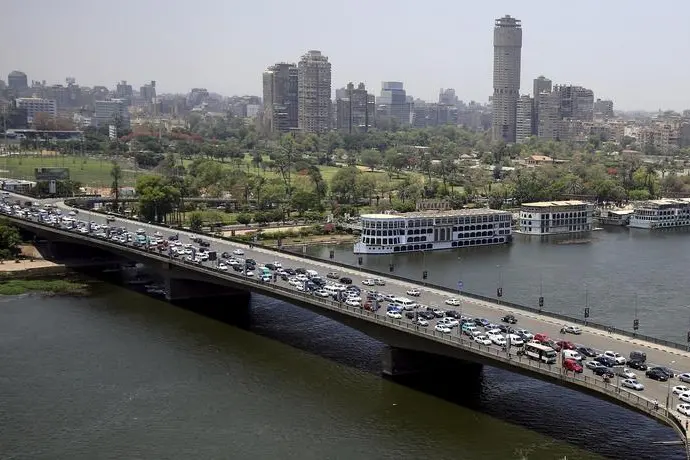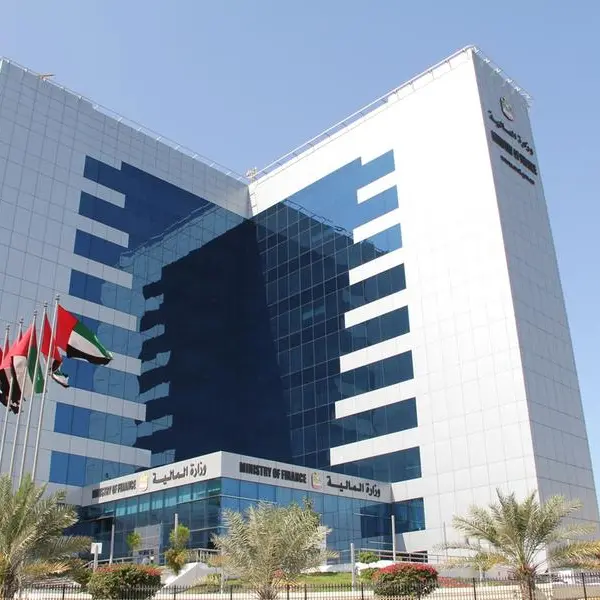PHOTO
Egypt’s recently-announced $11 billion sovereign wealth fund will be used to finance the state’s budget deficit, which stood at around 9.8 percent for its most recent fiscal year that ended on June 30, according to a member of the parliament’s economic committee.
Last week, Reuters quoted the state’s news agency officially announcing Egypt’s plan to establish a 200 billion Egyptian pounds ($11 billion) Sovereign Wealth Fund (SWF) - a financial mechanism that allows countries to make investment returns by locking in an amount of money within a longterm fund. The money is raised from state assets such as cash, properties and other financial resources.
“We have problems in the state’s budget as we have a soaring budget deficit and the fund is supposed to finance the budget, and could also be used in other developmental projects in education and healthcare,” Amr El-Gohary, a member of the Egyptian parliament economic committee, told Zawya in a phone interview last Thursday.
The law to establish Egypt’s sovereign wealth fund was passed by the country’s parliamenton July 16. Egypt is targeting a deficit of 8.4 percent for the current fiscal year.
“The 200 billion pounds will not come all at once, but will come gradually,” El-Gohary said, adding that the fund will be initially financed with around 5 billion Egyptian pounds. “As a start, the state’s treasury and the Ministry of Finance will pay 1 billion pounds.”
El-Gohary said Egypt has “over 4,000 unused assets” and the fund will create an investment tool for those assets. He said the fund’s capital will come entirely from the Egyptian state and will not include contributions from any other western or Gulf Arab states.
“The investments are expected to even exceed 200 billion pounds - a figure we don’t see as a big amount as we realise the big value of the assets that will be used in the fund and we have many assets, real estate, lands, establishments and some (public) companies,” El-Gohary said.
Partial privatisation
The Egyptian parliamentarian said that some state-run company assets such as buildings and land could be used in the fund, but he added that there were no current plans for the fund to be used as a tool to fully privatise state companies.
“Until now, the government does not talk about privatisation. But I think that maybe parts of some companies might get listed on the bourse, but as for the full privatisation of companies, there is nothing in the law of the fund that says that, but we will follow-up with the government every few months and will see the steps taken with the fund,” El-Gohary said.
In March, Egypt announced plans to sell stakes in 23 state companies to raise 80 billion Egyptian pounds through minority share offerings on the Cairo stock market, Reuters reported.
The companies will include Banque Du Caire, one of the country’s largest banks, and two major oil companies - Middle East Oil Refining (MIDOR) and Engineering for Petroleum and Process Industries (ENPPI).
This is not Egypt’s first attempt to monetise stakes in public sector companies - some of which have suffered heavy losses for decades. Former minister of public enterprises Khaled Badawi told a conference in Dubai in March that of 121 public companies in his ministry’s portfolio, 73 were profitable but 48 were not.
Ten years ago, a previous Egyptian administration that was in charge before a popular uprising in 2011, sold some stakes in companies including the state’s fixed-line monopoly, Telecom Egypt, and in Bank of Alexandria.
However, previous attempts by the government to sell public companies in mid-1990s were not welcomed by many Egyptians, who accused the country of selling off state assets too cheaply. Also, decisions to decrease staffing or cut salaries in other former state firms then prompted workers’ protests in 2006 and 2008.
“The privatisation issue in the nineties was marketed in a not very good way and had negative impact on the Egyptian people and the government institutions,” El-Gohary said.
Reza Karim, a credit analyst in United Kingdom-based asset management firm Jupiter, said that it is still too early to say how the fund’s proceeds would be used, but he added that it sets up the infrastructure for privatisation.
“It would be unusual for the government to set up this fund and not use it for privatisation if and when they decide to go forward with it,” Karim told Zawya in an interview last week.
First official sovereign fund
Egypt’s sovereign fund will be called “Egypt Fund”. It is considered to be Egypt’s first official sovereign wealth fund.
However, a similar type of fund was established by President Abdel Fattah El-Sisi a few years ago after he was first elected to office in 2014. The fund is called “Long Live Egypt” and the local media describes it as a national fund used to finance developmental projects. It is currently run by the Egyptian cabinet.
According to the state-run Ahram online news website, the Long Live Egypt fund’s executive committee included prominent Egyptian businessmen such as Naguib Sawiris and famous Egyptian Islamic scholars such as former Grand Mufti Ali Gomaa, along with representatives from the Egyptian Supreme Council of the Armed Forces.
The Long Live Egypt fund accepts donations and by March this year it had received 7.7 billion pounds from donors, an article by magazine Egypt Today said, quoting a state news agency report citing the Fund’s financial and administrative director, Tamer Abdel Fattah.
Last November, the fund pledged to provide 185 million pounds for developmental projects in a northern Sinai town called Bir Al-Abd, according to Ahram online website.
The announcement came right after a deadly attack on a mosque in the town that led to the killing of around 300 people and wounding of around 128 others, according to media reports.
However, detailed public information about the Long Live Egypt Fund, its sources of wealth and the returns generated has so far been limited.
When asked about the role that parliament would play in ensuring the probity and transparency of the Egypt Fund, El-Gohary said: “Of course, this point is a very important one. Some of those who opposed the idea of the fund had fears with regards to that there might not be a proper follow-up process on the fund and its investments. But we, as an economic committee and as parliament representatives, are supposed to have regular meetings with the government over the fund and the parliament’s role here is to monitor the government,” El-Gohary added.
Financial stability
Jupiter’s credit analyst Karim has said the adoption of SWF gives a “positive” indication on the economy as it is a sign of financial stability.
Egypt has been hit by a several political and economic crises over the past seven years. In 2016, it starting adopting a number of economic reforms that included floating its currency, the introduction of a new, more investor-friendly investment law and cutting state subsidies which were eating up a large portion of the state’s expenditure. The measures were necessary for the country to receive a $12 billion loan from the International Monetary Fund.
The World Economic Forum (WEF) has described sovereign wealth funds on a post on its website published last year as “becoming increasingly powerful players on the global financial scene”. Citing figures from the Sovereign Wealth Fund Institute, it said that Norway’s sovereign wealth fund is now the largest in the world with more than $1 trillion of assets. The Abu Dhabi Investment Authority is the second-largest fund, with assets of more than $828 billion.
El-Gohary said Egypt’s improving financial situation will play in favour of its SWF.
“The economic situation in Egypt is good now. In the recent period, we made a new investment law and started preparing the environment for investment,” he added.
El-Gohary said the government has a “long term” plan to partner with other sovereign funds, including Arab states from the Gulf Cooperation Council region. But, according to El-Gohary those partnerships will happen at a later stage, “after the fund started making a lot of profit and the investments start to bring in high returns that would benefit the people and the state first.”
He said the government has not yet set timelines for any future fund targets.
(Reporting by Yasmine Saleh; Editing by Michael Fahy)
(yasmine.saleh@thomsonreuters.com)
Our Standards: The Thomson Reuters Trust Principles
Disclaimer: This article is provided for informational purposes only. The content does not provide tax, legal or investment advice or opinion regarding the suitability, value or profitability of any particular security, portfolio or investment strategy. Read our full disclaimer policy here.
© ZAWYA 2018





















